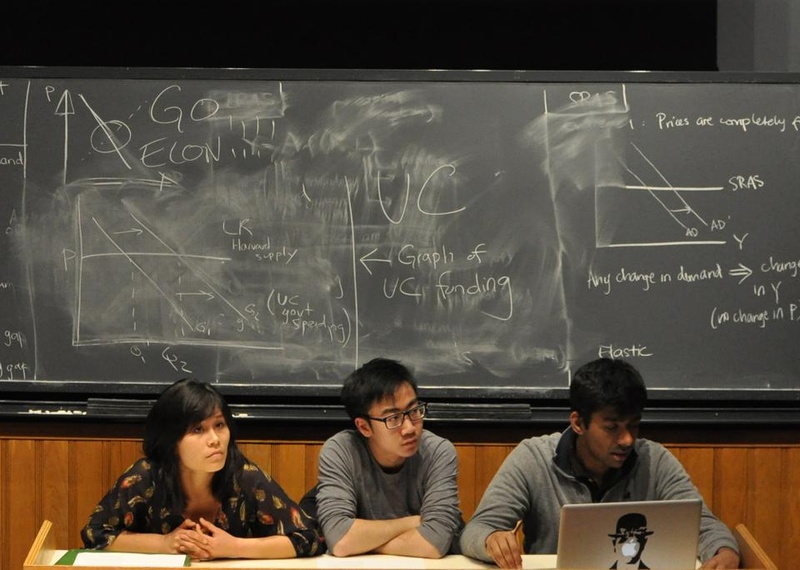Representatives of the Undergraduate Council voted unanimously Sunday night to express “tremendous concern” over administrators’ searches of resident deans’ email accounts and the broader issue of email privacy at Harvard. The approved legislation, which also calls on administrators to clarify both the Faculty of Arts and Sciences email privacy policy as well as student email privacy rights, comes less than a week after revelations of a previously undisclosed round of secret searches of a resident dean’s email accounts authorized by Dean of the College Evelynn M. Hammonds.
Following reports that administrators had searched the email accounts of 16 resident deans to plug a media leak regarding the Government 1310 case, Hammonds and FAS Dean Michael D. Smith released a statement on March 11 saying that the searches had been confined to subject-line queries of resident deans’ administrative accounts. But at a faculty meeting last Tuesday, Hammonds contradicted her previous statement, citing her “failure to recollect” additional queries of one resident dean’s administrative and faculty accounts—a breach of FAS policy—that also went beyond a simple subject-line search.
Currier representative Sietse K. Goffard ’15, who introduced the UC legislation at Sunday’s meeting, called on his fellow representatives to respond to students’ anxiety about their email privacy.
“This should be something that we’re all concerned about and having talked to many students, I know there are many concerns,” Goffard said during his presentation of the legislation. “At the end of the day, it’s their information that is under threat of being exposed and that’s just not something that as the Undergraduate Council we should be supportive of or not take a stance on.”
UC President Tara Raghuveer ’14 emphasized that the precedent of the administrators’ searches threatens not just the privacy of faculty or resident deans, but also that of students.
“With emails, the [faculty and student] policies are very intertwined,” Raghuveer said in her introductory remarks at Sunday’s meeting. “If a student is emailing a resident dean or faculty member, obviously if any of those emails can be searched, it’s a problem that affects all of the involved parties.”
The UC’s legislation also aims to give voice to students in upcoming discussions about email privacy at the University. It requests that UC members be present at at least one meeting of a task force formed by University President Drew G. Faust that will craft recommendations for a comprehensive new email privacy by the end of the fall semester. If that request is accepted, the representatives would use that meeting to convey the opinions of the student body, contribute to the discussion of policy recommendations, and present a UC memo on privacy policy, which is slated for release sometime this week.
Speaking in an interview after the meeting, Kirkland House representative Matthew R. Marotta ’14 called for a wider UC discussion about the recently revealed second email searches and Hammonds’ acknowledgement of her role in the mishandling of the queries.
“I think as a Council, we have a responsibility to have some kind of discussion about what happened, at one of our meetings,” said Marotta, noting that he was expressing his personal opinion, rather than that of the UC. “I think that we have a responsibility to advocate for students.”
However, Marotta emphasized that if the UC does decide to legislate on Hammonds’ actions, it should do so considering all the facts and the existing ties between the UC and Hammonds, so that the UC could continue to communicate student voice to administrators.
“I am 100 percent behind having a discussion about it and making sure that that discussion and whatever is decided upon within the UC forwards our working relationship with Dean Hammonds and with University Hall,” said Marotta.
—Staff writer Steven S. Lee can be reached at stevenlee@college.harvard.edu. Follow him on Twitter @StevenSJLee.
Read more in College News
Students Celebrate African Culture with "Africa Night"













